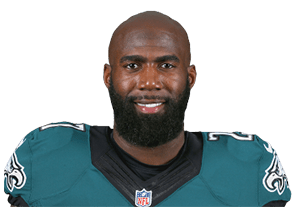That could’ve been me. That’s what I thought, watching the news reports in the summer of 2016 that recounted the slayings by police of Philando Castile in Minnesota and Alton Sterling in Baton Rouge, Louisiana. Before, if I’d seen an injustice in the news, I would get upset, but only enough to write 140 characters expressing my distaste. I’d post my opinion about it on social media, and then after a few days and a new breaking story, I was over it. That was the extent of my role in social justice: Reactionary.
But in the summer of 2016, I looked at myself in the mirror. Am I doing enough? I wondered. What if that was me? Or my brothers? Or my cousins? Or one of the many young boys and girls that my foundation serves? I could see it! I could feel the hurt and sorrow that would come if that were a loved one of mine. As a leader in my family, in my community, and amongst my peers I decided to start looking for ways to change behaviors and find solutions. Fed up after the shootings of Castile and Sterling, I wanted understanding. I wanted answers to all of the questions that spiraled in my head as I watched the videos of these men lose their lives at the hands of those sworn to protect them.
Don’t get me wrong. I know a lot more than I knew at this time last year, but I still have so much to learn. But what’s been really encouraging is how many people out there are just like me—eager to learn more and committed to finding solutions. Those solutions will come from a place of understanding.
My journey to learn the problems and find how best to assist in change had begun. I reached out to the Philadelphia Police Department, wanting to learn. I wanted to hear what other officers thought about these killings. I wanted to hear how they thought we could fix these problems—if they even thought we had problems at all. I also wanted to hear the voice of the community. I wanted to hear from those on the grass roots level working everyday to serve and help those that are most vulnerable. A private roundtable discussion between Philadelphia Police Commissioner Richard Ross and a room full of community leaders led me to look at all this as a systemic issue, more than a “people” issue.
I read books like The New Jim Crow, by Michelle Alexander, which lays out how millions of African-Americans have been locked behind bars in America, only to too often be released into second-class status. But the best teaching tool for me and my generation is 13th, Ava DuVernay’s 2016 documentary, which gives the whole context from slavery to the present day. We have 5 percent of the world’s population, but 25 percent of its prisoners; 13th gave me the context for how our prison industrial complex came to be.
I started diving in, listening to the opinions of those in law enforcement, as well as to citizens in inner-city communities. I took a prison visit and heard from those who are behind bars and those who are trying to readjust to life out of prison. I’ve taken multiple trips to our nation’s capitol to speak with politicians, and have lobbied for reforms, all of which I’ll write about in this space throughout the season.
I began perusing through YouTube videos in search of speeches from legendary leaders like Dr. Martin Luther King, Jr., Malcolm X and Fred Hampton. When I heard these men speak it was obvious they were addressing many of the same issues we are faced with today. What it showed me is that there is still work to be done, and these leaders of the past did much more with much less than I have access to. What was my excuse for not speaking up like Malcolm X? What was my excuse for not organizing when Dr. King and others organized the March on Washington without social media? What was my excuse when Fred Hampton organized people from all races in the city of Chicago to stand up against an oppressive system at the age of 21?
I thought this was a fight against racism, white against black, until I heard the Chairman of the Chicago chapter of the Black Panther Party speak these words: “Power to the People, white power to white people, brown power to brown people, yellow power to yellow people, black power to Black people, X power to those we left out.”
Am I doing enough? I wondered. What if that was me? Or my brothers? Or my cousins? Or one of the many young boys and girls that my foundation serves? I could see it! I could feel the hurt and sorrow that would come if that were a loved one of mine.
I grew up hearing that the Black Panther party was a violent, racist, radical group. It was more complicated than that. Hampton’s speeches were all about unifying black, white and Latino communities against an oppressive system and the brutal tactics of its officers. “Power to the People” literally meant let’s return power to the people. At the age of 21, Hampton united warring gangs in Chicago and got them to sign on to a peace treaty—and because of that power, he was murdered.
Don’t get me wrong. I know a lot more than I knew at this time last year, but I still have so much to learn. But what’s been really encouraging is how many people out there are just like me—eager to learn more and committed to finding solutions. Those solutions will come from a place of understanding.
That’s why it meant so much that my teammate, Chris Long, came up to me in the locker room before our preseason game against Buffalo last month. He said he didn’t want to take anything away from my protest, but he wanted to support me. He’s from Charlottesville, and we’d been talking since last summer about ways that he could get involved in calling attention to the problems in our justice system. “More white men need to position themselves as allies when we’re talking about conversations dealing with social equality and social justice,” he said.
During the National Anthem, with his hand still over his heart, Chris put his other arm around me as I raised my fist in the air. It showed the power of understanding. He understood what the anthem meant to him personally and simultaneously understood what I was demonstrating for. It sent an important message to other athletes and to all citizens: Civil rights and criminal justice reform is not a black or white issue. It’s an American issue.
That said, many of us remain focused on the causes behind the league wide anthem protests. Along with former NFL star Anquan Boldin, I’ve helped put together a group of 40 players who are lobbying for legislative reform and speaking truth to power—you’ll hear all about that in future columns. Also each week, we’ll publish a chart comparing how Philly’s criminal justice data stacks up against the criminal justice stats of the city of our opponent.
Meantime, here’s to a great season of football and to making our justice system fairer for all, no matter their color or station in life. Peace.
Results
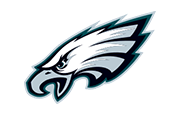 PhiladelphiaEagles | | 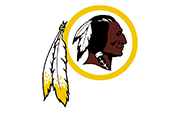 Washington D.C.Redskins |
| Homicides per 1,000 residents .18 | Eagles | Homicides per 1,000 residents .24 |
| Violent crime per 1,000 residents 10.3 | Eagles | Violent crime per 1,000 residents 12.69 |
| Marijuana decriminalization Yes | Tie | Marijuana decriminalization Yes |
| Police involved shootings 23 | Redskins | Police involved shootings 15 |
| People in jail per 100,000 residents 448 | Redskins | People in jail per 100,000 residents 311 |
| % police of color / % population of color 43.2/55 | Redskins | % police of color / % population of color 68.4/64.5 |
| % jail population awaiting trial 134 | Redskins | % jail population awaiting trial 31 |
| Juvenile court case counts per 10,000 residents 307 | Redskins | Juvenile court case counts per 10,000 residents 0 |
| Washington D.C. Redskins |
Sep. 10 | - Tie |  Redskins |
Sep. 17 | - Tie | 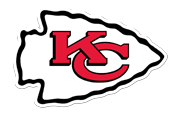 Chiefs |
Sep. 24 | - Tie | 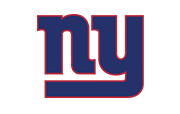 Giants |
Oct. 01 | - Tie |  Chargers |
Oct. 08 | - Tie | 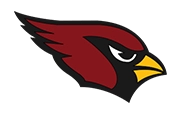 Cardinals |
Oct. 12 | - Tie | 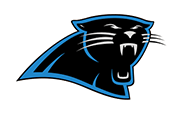 Panthers |
Oct. 23 | - Tie |  Redskins |
Oct. 29 | - Tie | 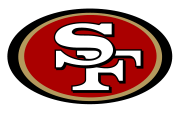 49ers |
Nov. 05 | - Tie |  Broncos |
Nov. 19 | - Tie | 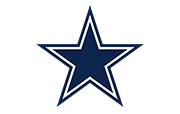 Cowboys |
Nov. 26 | - Tie | 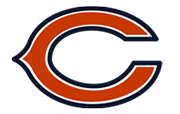 Bears |
Dec. 03 | - Tie |  Seahawks |
Dec. 10 | - Tie |  Rams |
Dec. 17 | - Tie | 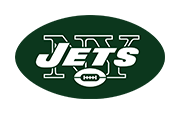 Jets |
Dec. 25 | - Tie | 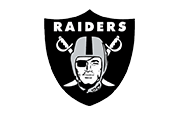 Raiders |
Dec. 31 | - Tie |  Cowboys |
Jan. 13 | - Tie | Falcons |
Civic Record:
EAGLES | Wins 0 | Losses 0 |
Upcoming Games:
| Jan. 13 | 4:35 PM | 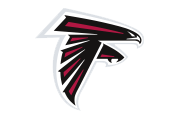 Atlanta Atlanta |
For more information on this data, see the Criminal Jusice Season Explained page.
Note: Washington, D.C., police involved shootings data from 2015; Philadelphia from 2016.
Correction: Jail population has been updated to reflect numbers as of the first week of September.


